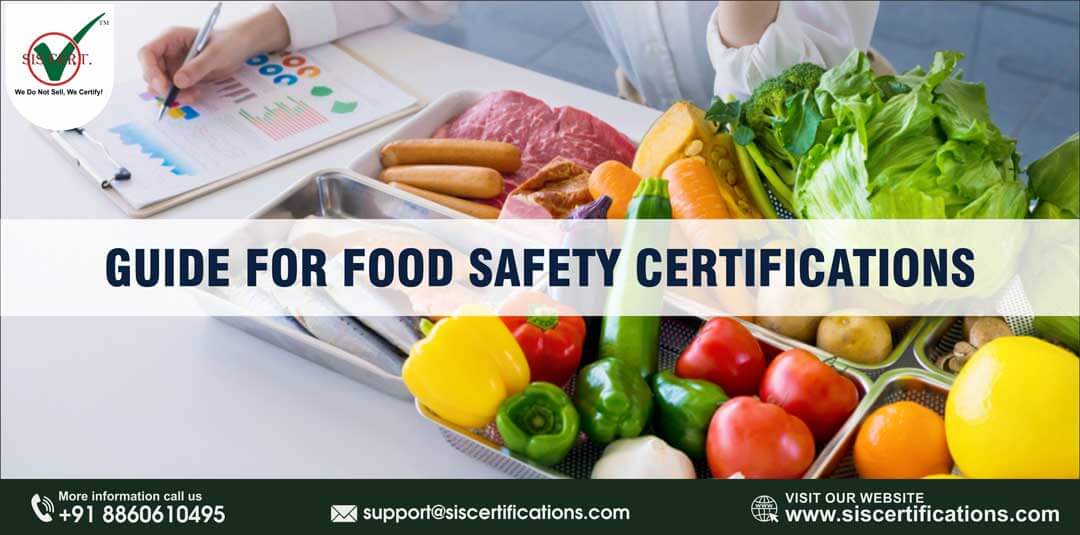Food safety is crucial to protect customers from health risks. Access to safe and healthy food is a key to good health and happy living. It is necessary to know about the quality of the product before consuming it. We have Food Safety Certification ISO 22000 that validates the quality of the food products and ensures the safety and good health. Any industry associated with food either directly or indirectly needs this certification.
What is ISO 22000?
ISO 22000, also known as Food Safety Management System, provides a framework to implement and operate a food safety management system to provide safe and healthy food products to meet customer requirements. ISO 22000 certification applies to all food industries regardless of size and location. The Food Safety Management System standard complies with the HACCP principles.
It concentrates on strategic decision-making for an organisation to enhance its food safety performance. It helps the organization to monitor, identify, prevent and improve food safety hazards. It strives to deliver safe and healthy products to meet customer requirements.
Benefits of ISO 22000 Certification ⮯
- It makes the organisation reliable and credible.
- ISO 22000 strives to meet customer requirements and deliver safe and healthy products, which expands the customer base.
- It helps an organisation to reduce its cost as it ensures food safety and quality products.
- ISO 22000 offers global recognition to the organisation because it is an internationally accredited certification that promotes transparency and accountability, strengthening the confidence of the customers.
- It requires strict compliance with food safety regulations.
- It helps the organisation to monitor, identify, prevent and improve any shortcomings and helps to optimize and update the system.
- ISO 22000 Food Safety Management System works on detecting and preventing approaches as it aims to identify potential risks and opportunities. It formulates strategies to mitigate the risk and reap the opportunities.
Food Safety and Factory Audits⮯
Food safety audits help in ensuring transparency and assure that standards are being maintained. It focuses on the organisation’s operation, such as the food safety management system, food storage, sanitation, and hygiene.
A food safety audit evaluates and documents the organisation’s food safety management and ensures that all the practices comply with the food safety laws and regulations.
Importance of Food safety audit⮯
A food safety audit is crucial due to the following reasons:
- It is a transparent report.
- It is conducted to evaluate and verify the food safety system of an organisation.
- It aims at improving the food safety standards of an organisation.
- Focuses on strengthening the food control system
- An external or internal can conduct the audit.
International food safety certifications ⮯
- Good Manufacturing Practices (GMP) GMP is also known as Good Manufacturing Practices. It requires an organisation to manufacture quality products to eliminate contamination and the risk of errors. GMP standards require strict compliance with the laws and regulations, and failure to comply can lead to severe consequences. GMP requirements are flexible. The organisation can determine the best practices based on its needs. It is the minimum standard that medicine manufacturers meet in their production process. The European Medicine Agency (EMA) conducts frequent inspections to verify compliance with these standards.
- Hazard Analyses Critical Control Point (HACCP) HACCP, also known as Hazard Analyses Critical Control Point, is an internationally accredited certification. It prevents any physical, chemical, and microbiological contamination of food products at all levels of the food supply chain. It follows an evidence-based approach to demonstrate the organisation’s commitment to delivering safe and healthy food products. HACCP Certification is given to food processors and manufacturers to ensure that they have implemented the standards effectively.
- Halal Certification Halal Certification is a document that ensures the food products meet the requirements of the Muslim population. Halal word is taken from Quran, which means lawful, legal, or permissible. It guarantees the quality of food products based on the rules established by Islamic laws. It considers food safety and storage practices and provides access to the global market, where the halal certificate is mandatory.
- Food Safety System Certifications (FSSC 22000) FSSC 22000 is a Global Food Safety Initiative (GFSI), which provides a framework for food safety standards. It proposes a complete Certification for audit and food safety management system (FSMS). It also offers combined certification for Food Safety Management System (FSMS) and Quality Management System (QMS)- FSSC 22000-Quality.




